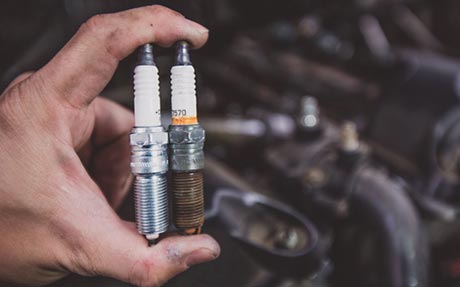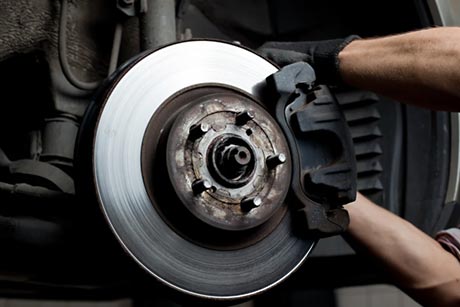11 Tips To Keep Your Car In Good Condition
Car ownership is not just about fuelling up and driving away. When it comes to car care, it doesn’t make a difference whether you have a premium or a basic car. All cars are equal in that they need regular maintenance. Violate this simple rule and you could be heading for inconvenient breakdowns or expensive repairs.
When you buy a car, you are not making an investment. It’s an asset that will depreciate with every passing year. To make the most out of your money and your overall cost of ownership, you must maintain your car well. It’s a simple principle; take care of your car and it will serve you well. Here are 11 maintenance tips to keep your car and wallet in good shape.
Basic Car Care
Tip 1: Keep Your Car Clean And Shiny
Wash your car at least twice a month. This is not just about appearance. Dirt, snow and salt from roads can cause rust. Just wiping the body will not be enough; you have to wash the car with water. This is more important if you are living in an area that’s cold or near the sea.
For a new car, the difference may not be apparent, but as the years go by, washing makes a significant difference. Compare two 10-year-old cars, one regularly washed and the other washed once in a few months. You will see the difference. You can also wax the painted surfaces every three months and it will act as a protective coat against paint damage.
Tip 2: Check And Replace The Wipers
Maintain the windshield wipers of your car in good condition even if you live in an area where they are hardly needed. With poor wipers, it’s tough to drive in a rain or when there’s heavy snow.
Bad windshield wipers will not give you a clear view of the road and increases the risk of accidents. Wipers are cheap and are easy to replace. Besides, a worn or misaligned wiper can scratch your windshield requiring a more expensive repair. Replace wipers as soon as they start showing the first signs of wear.
Tip 3: Grease The Door Hinges
Use a grease spray to lubricate the door hinges and the locks. It’s easy and you should do it at least once in a year. This will keep your door hinges and locks working well. Besides, a car with creaky doors is not very impressive.
Under The Hood
Tip 4: Take Care of The Battery
A bad battery can give you trouble at the worst possible time, just when you are in a hurry to go somewhere. Power from the battery is required to start your car and to keep all electrical systems running. If the battery does not hold charge or is not functioning correctly, you may find yourself stranded somewhere waiting for help to jumpstart your car.
Of all the DIY maintenance, battery maintenance is probably the most critical. So, it’s better to err on the side of caution. If your battery is over three years old, at the first signs of starting problems, get it checked. While there are many possible causes, but the most common one is a fault with the battery or the charging system.
Regularly check the fluid levels of lead acid batteries and if necessary, top it up as instructed by the manufacturer. If you are not using the car for a long time, run the engine once in a week for a couple of minutes to maintain the battery charge. This is very important in cold weather because batteries with low change die faster at cold temperatures.
Tip 5: Check The Air Filter
Your engine breathes through the air filter and its job is to remove dust, dirt and debris from the incoming air. This air is then mixed with fuel in the engine and ignited. For smooth running of your car and for good fuel efficiency, the air filters should be in good condition. With use, air filters get dirty and clogged. They have to be periodically inspected and changed.
Tip 6: Check The Engine Oil Periodically
Engine oil lubricates the moving parts inside the engine. The efficiency and life of the engine is highly dependent on lubrication. That’s why your car has an indicator to warn you about low engine oil pressure. Checking oil level and condition is part of basic maintenance. Engine oil must be topped up periodically and if it has deteriorated, it must be replaced.
Use the dip stick on the reservoir to check the oil level and condition. If you notice an abnormal drop in engine oil levels, your car is probably leaking oil. Get it checked without delay. If the level is low, top it up with the recommended oil type. If the oil has turned black or the mileage between oil changes specified by the manufacturer has passed, get the engine oil replaced.
Driving with low levels of engine oil can cost you dearly. The most common outcome is severe engine damage, which may need expensive repairs or engine replacement. For old cars, the high repair costs may not make economic sense.
Tip 7: Check And Top Up All Fluids
Besides engine oil, there are many other fluids like power steering fluid, brake fluid, transmission fluid and coolant, which are equally important for safe and smooth running of your car.
The power steering of your car will not function correctly if the oil level is low or if there are leakages in the pump or hoses. Low transmission fluid could ruin your transmission leading to major breakdowns and expensive repairs.
The coolant is the central part of the cooling system, which keeps the engine cool as it runs. The coolant is as critical as the engine oil because overheating can damage the engine beyond repair. That’s why engine temperature is displayed on the dashboard. If you notice the engine overheating or the coolant leaking, get it checked immediately.
The reservoirs for all the fluids in the car are in the engine bay. Check your manual for the exact positions and ensure that all fluids are in good condition and topped up to the recommended levels. A word of caution: Don’t try to open the coolant cap when the engine is hot. Hot coolant may cause injury.
Tip 8: Check The Spark Plugs
If your car runs on petrol, it will have spark plugs. They often get little attention from owners, but are critical for correct and efficient engine operation. Depending on the type of your car, it will have four or more spark plugs.
The spark plug delivers the spark necessary to ignite the hot air and fuel mixture in petrol engines. Over time, carbon deposits will develop on the tips of the spark plugs and they will not be able to function correctly. This directly affects engine performance and the usual symptom is a misfiring engine.
Spark plugs will normally need checking after 50,000 miles. For small wear, cleaning them may solve the problem. If your mechanic suggests a replacement, it’s best to replace all the spark plugs. Spark plugs are cheap and can be replaced easily.
Under The Car
Tip 9: Check Tyre Pressures
Check tyre pressures regularly, preferably once in a week or 10 days. This is important because correct tyre inflation has a direct impact on safety, ride quality, tyre life and fuel efficiency.
The correct tyre pressures will be mentioned in the owner’s manual and on the side of the driver’s seat. Depending on the car, this is between 30 to 35 PSI. Correct tyre pressure ensures that the tyres have an even grip on the road and wear evenly. Both high or low tyre pressures are bad and they can have an impact on the suspension components. Inflating tyres usually doesn’t cost anything and easy enough for anyone to do.
Tip 10: Wheel Alignment
Wheel alignment should be checked and fixed every two years. Most people are unaware about wheel alignment. Wheels can get misaligned when you drive into the curb or during suspension repairs. It can also change with time due to bushes wearing out.
The cost of bad wheel alignment is poor control and accelerated tyre wear. Tyres don’t come cheap and it’s better to get the wheel alignment checked and fixed periodically. You may need to do it earlier than two years if you had a bad curb hit or a suspension repair. Wheel alignment needs special equipment and can be done only at a garage or tyre outlet.
Tip 11: Check Brake Components
The Brake is the most critical safety system of your car. It is critical for stopping in time and keeping the car in control. That’s why, you will find a big section on maintaining brakes in any vehicle manual.
If your brakes are giving trouble, get it checked right away. Never put off brake repairs for whatever reasons because your life depends on it. The brakes of your car should always be in top condition. You should get it checked periodically once in three to six months. If you observe any squeals as you brake or it takes longer for your vehicle to come to a stop, get it checked right away.
You can use a torch to check the brakes visually. Just aim the light to the inside of the rim and you will see the brake rotors and brake pads. The brake pads should have at least 4 mm of material left and the rotors should not be rusted. If necessary, get them replaced.
Regular maintenance and checks are required to keep your car in good condition. Many of these checks are performed during periodic servicing. Some of them are also performed during MOT tests.
Conclusion
Understanding how components and devices work in your car gives you an advantage and the possibility of potentially fixing any problem in a timely manner. If you are not mechanically minded or inclined, contact your technician to get an unusual problems investigated , repaired or replaced in order to avoid the issue escalating.
For car servicing and repairs in and around Manchester city centre and North Manchester, you can count on Servicing Master. You can get a quick repair or service quote from a local premium garage close to you by using our simple car service quote form. We also offer a collection and drop off service. A convenient, friendly and affordable service, try Servicing Master once and you’ll never go back. Give us a call now on 0161 302 0201. Or simply book your car service now.
Get A Quote Now
Why waste any more time searching for a reputable professional garage wth a good rate. Simply click the Get Started button below to complete our quick and easy quote form, we’ll do all the work for you and there’s no obligation.
Hassle Free!
These guys do what they say on the tin. I work for NHS so I am usually always at work these guys collected it while I worked, liaised via email as i couldn’t answer the phone.
Carried out the work and dropped it back off for me, Happy with the service and the nice touch at the end vehicle came back nice and clean!
30 Jan 2019
Top service, knew straight away what the problem was. Had it back next day which was great, glad I’ve found a garage I can use in the future would defiantly recommend. Even gave my car a wash.
Had my car service and mot with Bury branch. Excellent service kept me posted with everything they were doing. Professional, friendly and helpful definitely recommend them. Thanks.
EASY FROM THE START!
Booked online, great realistic price, none of this cheap drag you in and shake you down when you get there. Car collected from work, serviced and mot all done and straight forward, I needed an additional bulb which they rung me and told me.
Car delivered before I finished work and they even gave it a long awaited wash and vacc Lol!
All done from my desk at work defiantly be using them for my wife and daughters vehicles!
30 Jan 2019
Great people to deal with. Trusted with my family’s cars for many many years. Great service, go the extra mile. Thoroughly recommend for anyone looking for work on their car whatever the marque.
Just a quick line, I have finally found a garage where I have complete confidence. Professional and informative, Lisa and Mike are a pleasure to deal with. Thank you.




